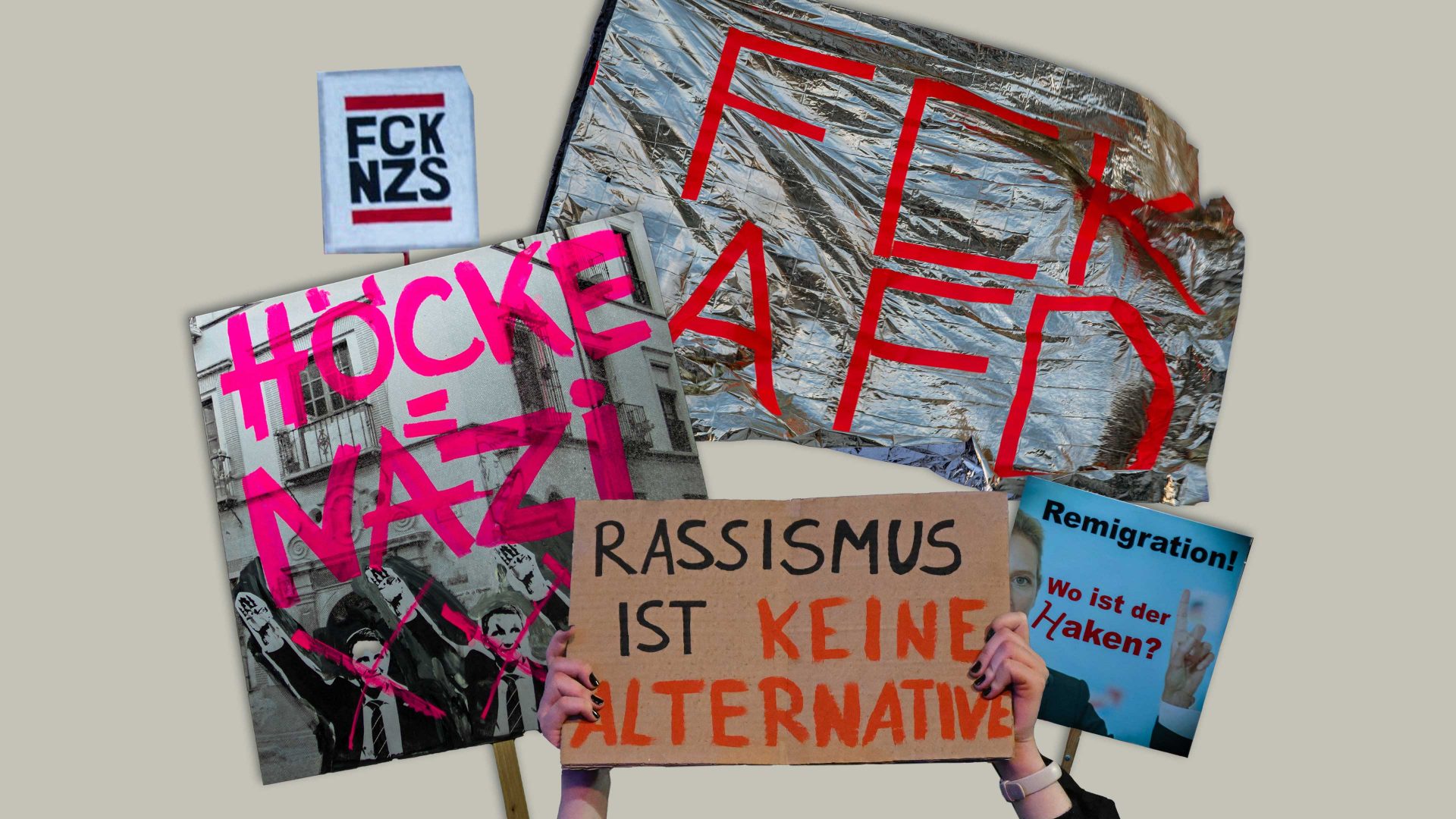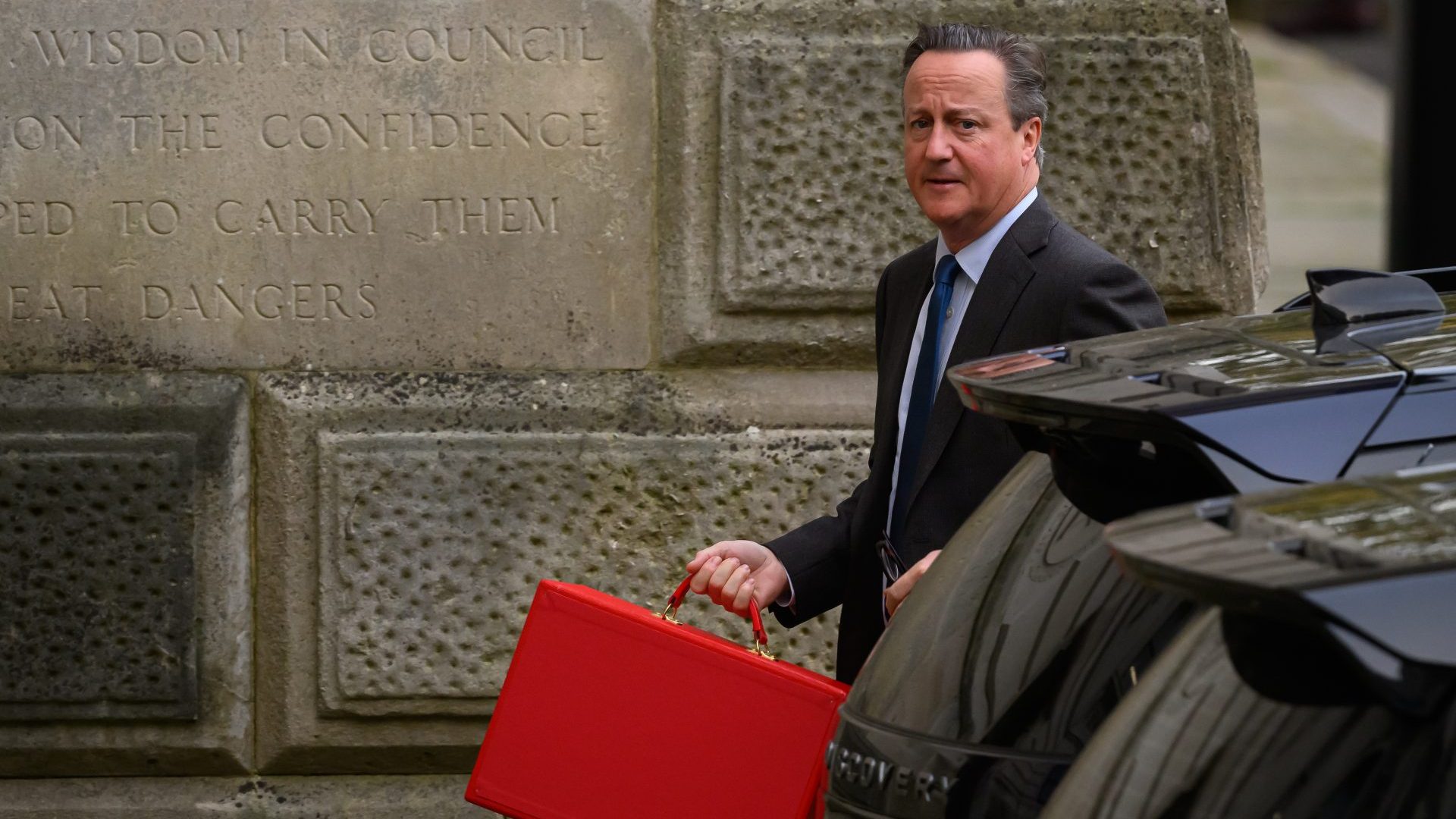My Germanophile colleague Alastair Campbell recently praised the manager of SC Freiburg, Christian Streich, who gave a passionate speech against the far-right threat to our society (“It’s five minutes to 12”).
The 53-year-old wasn’t told to shut up and stick to football, by the way, because anyone involved in Fußball is generally expected to serve as a role model. Vorbildfunktion, we call it. And Streich’s call to action was just the start. In more than 90 German towns there were mass rallies against right wing extremism.
It was a show of force by the usually silent majority, despite freezing temperatures. My other Germanophile colleague, John Kampfner, wrote that he wished for similar protests against “the alt-right, anti-migrant policies of a certain UK government”.
But the difference is the German government, ideologically and in practice, has probably been the most left leaning this country has seen so far.
So what triggered the protest?
An investigative report by Correctiv, a publicly and privately funded journalism and fact-checking team, about a secret alt-right workshop at a Potsdam Hotel in November. The participant list included a well-known extremist from Austria (seems we can’t do without them), a close staff member of the AfD’s chair, Alice Weidel, a dentist flirting with fascism, and two women belonging to a fringe group that the CDU would like to get rid of but somehow cannot.
Their discussion on how to save Volk und Vaterland centred on “remigration”; in other words, how to kick out unwanted foreigners as well as “non-assimilated” citizens. Which would be blatantly anti-constitutional, not to mention impractical. In Germany, 23.8 million people have an immigrant background, 10 million of them have a German passport. And according to official demographics, every second child under 10 years old has at least one immigrant parent. So the alt-right fantasy of mass deportations is exactly that: a fantasy.
Other topics on the Potsdam masterplan were campaigns to strategically discredit trusted institutions like the constitutional court or public broadcasters, and funding alt-right influencers to affect young voters. Nothing new here, and still a reason for concern, because ever since the German far right exchanged white-laced jackboots for a seemingly bourgeois PR strategy, their appeal has increased.
And I’m afraid that rallies like the ones we have just seen will not change this, nor recent calls to ban the AfD (voiced by the chair of the Social Democrats) or to strip the particularly nasty AfD frontman Björn Höcke of his electoral rights (proposed in a petition signed by 1.2 million people).
In Germany, unlike several other European countries, far-right populists aren’t part of the government, on either state or federal level. No other party wants to cooperate with them, and all relevant German media tirelessly point out the threat the AfD poses to society.
And yet, this party – partly under official state surveillance for right wing extremism – continues to gain traction. In the last federal election in 2021, for instance, AfD was more popular among labour union members (12.2%) than among the general public (10.3%).
Today, more than two years later, AfD reaches 20-30% in the polls.
Personally I think there is no justification to support a party with racist gits in their inner circles, no matter how much you dislike the government. But next to the voters I also blame activists, politicians and journalists who either lazily or intentionally use rhetoric that blurs the significant differences between conservative and right wing policies on one side and far right, radical and extremist propaganda on the other.
For decades, if you addressed uncomfortable issues – the wrong incentives in the social welfare system, integration deficits among immigrants, flaws in the asylum system – albeit with every intention to uphold a liberal German society, you were still labelled rechts (generally used to mean far right). No wonder so many problems were left unsolved.
This is now backfiring, to the point that even the SPD chancellor, Olof Scholz, is accused of “normalising rechts rhetoric”, simply because he tries to do his job and find reasonable, non-Rwandan ways to tackle the migration crisis that puts a massive strain on local authorities.
Unsurprisingly, many of the recent rallies were also called “protest against rechts”. It’s shorter, but this language only helps the AfD: as long as everything is branded far-right, commonsense border controls as well as disgusting racial nationalism, AfD can blend in. When in fact they must be singled out.




